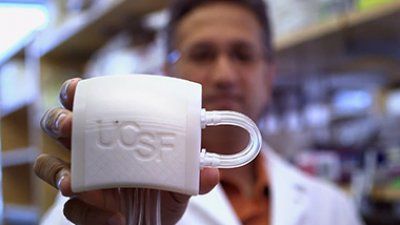University of California San Francisco
Give to UCSF-
-
UCSF Police Report Theft at Mission Bay Community Center
UCSF Police report that on Wednesday, April 3, 2013, at about 10:50 a.m., a UCSF employee observed a suspect remove her purse from a cubby on the fourth floor of the Bakar Fitness and Recreation Center at the Rutter Center at UCSF Mission Bay.

-
White House BRAIN Initiative Plants Seed for New UCSF Partnership
UCSF has recently partnered with Lawrence Berkeley National Laboratory and UC Berkeley to form the Tri-Institutional Partnership, in an effort to promote collaborative research among the three institutions.
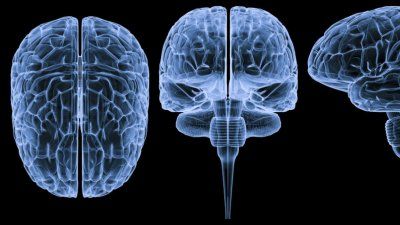
-
President Obama Unveils Brain Mapping Project
President Barack Obama has unveiled a bold public-private initiative to map the brain to gain greater insight on how we think, learn and remember and to better understand and treat diseases ranging from autism to schizophrenia.

-
UCSF Breaks Ground on Major New Building at Mission Bay
UCSF has broken ground on “Mission Hall,” also known as the Global Health & Clinical Sciences Building, which will be a major new structure on the Mission Bay campus.
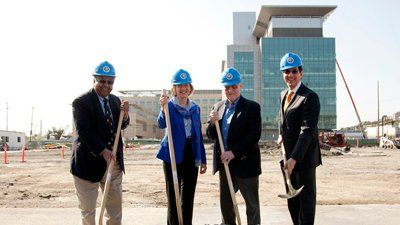
-
Check Kids for High Blood Pressure?
-
Sodium, Hiding in Plain Sight
-
Scientists Discover DNA Damage Occurs as Part of Normal Brain Activity
Scientists at the UCSF-affiliated Gladstone Institutes have discovered that a certain type of DNA damage long thought to be particularly detrimental to brain cells can actually be part of a regular, non-harmful process.

-
Faith Leaders Preach Healthful Living
The Abundant Life Health Ministries Initiative is a partnership between UCSF and nearly 30 churches across the Bay Area to address health disparities of minority populations.

-
Teaching Tolerance One Goal at a Time
By providing scientifically based curriculum at after-school programs, UCSF helps kids learn how to manage their anger while excelling on the field and in the classroom.

-
Dentistry Residents Offer Free Screenings
Through events such as the June dental screenings in Bayview, UCSF School of Dentistry residents, students and faculty reach out to communities to let them know about free access to children's dental care.

-
Greta Schnetzler Named Chief Campus Counsel at UCSF
Greta Schnetzler, JD, a well-respected attorney with extensive experience in higher education, has been named Chief Campus Counsel at UCSF.

-
The Real Limitless Drug Isn’t Just for Lifehackers Anymore
-
California’s Breast Density Notification Law Goes Into Effect
-
Doctors Use Deep Brain Stimulators to Fight Parkinson's Disease
-
Media Advisory: Cell-Based Therapeutics: The Next Generation of Medicine
Scientists at UC San Francisco will host a one day symposium, “Cell-Based Therapeutics: The Next Generation of Medicine,” with some of the nation’s leading clinical and laboratory researchers in stem cell therapy, immunotherapy and bacterial therapeutics.

-
The Costs of Emergency Room Cost-Cutting
-
Robert Lustig
-
Drug-Company Data Vaults to be Opened
-
UCSF Begins Huge Health eHeart Study
-
New Genetic Testing for Prostate Cancer May Reduce Unnecessary Treatment
-
Scientists Discover New DNA Regions Associated with Three Cancers
-
EEG Identifies Seizures in Hospital Patients, UCSF Study Finds
Electroencephalogram, which measures and records electrical activity in the brain, is a quick and efficient way of determining whether seizures are the cause of altered mental status and spells, according to a UCSF study.

-
Yes, the NIH Spent $30,000 to Study Fat Latino Kids Who Drink a Lot of Soda
-
Hana El-Samad: 'A Star in Her Field'
<p>After earning a PhD degree in mechanical engineering, Hana El-Samad is now a basic scientist at UCSF where her <span class="bodytxt"><span class="bodytxt">research aims to use </span></span>algorithms to better understand how signals get encoded and decoded in cellular circuits.</p>
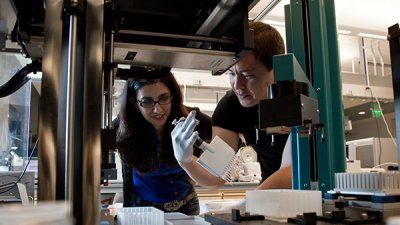
-
Listening Between the Lines
<p>Culturally sensitive communication is an essential piece of the core communications competency required of UCSF graduates, and Carol A. Miller, MD, works to help residents and medical students build those skills.</p>
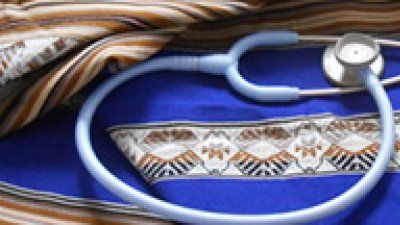
-
Li Ka Shing Foundation Gift Boosts UCSF Role in 'Precision Pedicine'
-
Li Ka Shing Gift Supports UCSF Quest for Precision Medicine
The Li Ka Shing Foundation has pledged $2 million to support UCSF’s efforts to advance precision medicine, an emerging field aimed at revolutionizing medical research and patient care.
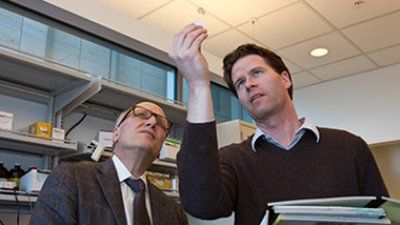
-
Influence of Unconscious Bias Focus of Diversity Discussion
<p>The UCSF community is invited to join a discussion on "The Influence of Unconscious Bias" on Tuesday in Cole Hall on the Parnassus campus.</p>

-
Artificial Kidney Holds Promise for Vast Majority on Dialysis
<p>A UCSF-led effort to create an implantable artificial kidney for dialysis patients is now featured in a video as part of the University of California's Onward California campaign.</p>
